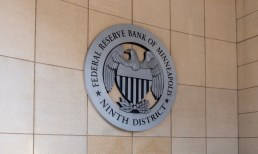The U.K. Treasury launched a consultation proposing an insolvency regime for digital assets, and in particular for systemic stablecoins. The recent events with TerraUSD have highlighted the need for appropriate regulation to mitigate consumer and financial stability risk, the government said. The proposed regime would position the Bank of England (BoE), instead of the Financial Conduct Authority (FCA), as the lead institution managing the collapse of a stablecoin that has systemic importance to the financial system.
The FCA will continue to have powers to regulate and supervise firms that engage in relevant electronic money and payment activities, and it will also be consulted by the BoE. But the government is planning to broaden the definition of a payment system to include arrangements that facilitate or control the transfer of “digital settlement assets.” This would provide the BoE with powers to regulate systemically important payment systems and services providers.
The consultation aims to regulate systemic digital settlement assets (DSA) which may have implications for the financial stability of the country. For stablecoins, the proposed regulation may affect the issuer of a stablecoin, a wallet or a third-party service provider.
The government is planning to design a specific legal framework for systemic DSA firms, but in the meantime is considering changes to the insolvency rules for payment networks to create a system to handle the breakdown of crucial stablecoins in the future. In the U.K. there are two insolvency regimes for systemic firms that are not a bank: the Financial Market Infrastructure Special Administration Regime (FMI SAR) and the Payment and E-Money Special Administration Regime (PESAR). The consultation proposes to amend and apply the FMI SAR for DSA firms, bringing crypto within the jurisdiction of the Bank of England while giving the institution control in the event of a collapsing stablecoin.
One of the main differences between traditional payment systems and DSAs is that “DSAs allow users to store value which is used for the movement of funds between crypto assets without transitioning into fiat money.” In these cases, given the nature of the firm, the government argues that the continuity of service may not be sufficient to mitigate risks to financial stability arising from the failure of a systemic DSA firm, particularly where large number of individuals may lose access to funds and assets they have chosen to hold as DSAs. Thus, the government intends to add to the FMI SAR an additional objective covering the return or transfer of funds and custody assets to the users. This would allow administrators to take into account the return of customer funds and private keys as well as continuity of service.
Advertisement: Scroll to Continue
The government also intends to introduce specific regulations in support of the FMI SAR to ensure that it can operate effectively when applied to DSA firms, so that this additional objective of covering the return of funds can be effectively managed by administrators. This is necessary, the government argued, because the existing FMI SAR rules and regulations were drafted solely with the FMI SAR’s continuity of service objective in mind and may not provide administrators with the necessary framework to address an objective oriented towards protecting consumers. Last, the government also said that the way in which the regime applies to traditional payment systems will not be impacted by these changes, which will only apply where a DSA is involved.
The government also announced that in the coming months it will launch another consultation to redefine the regulatory framework for systemic payments firms at large.
Read more: UK Stakes Claim to Crypto Leadership, Cites Friendly Regulatory Climate




